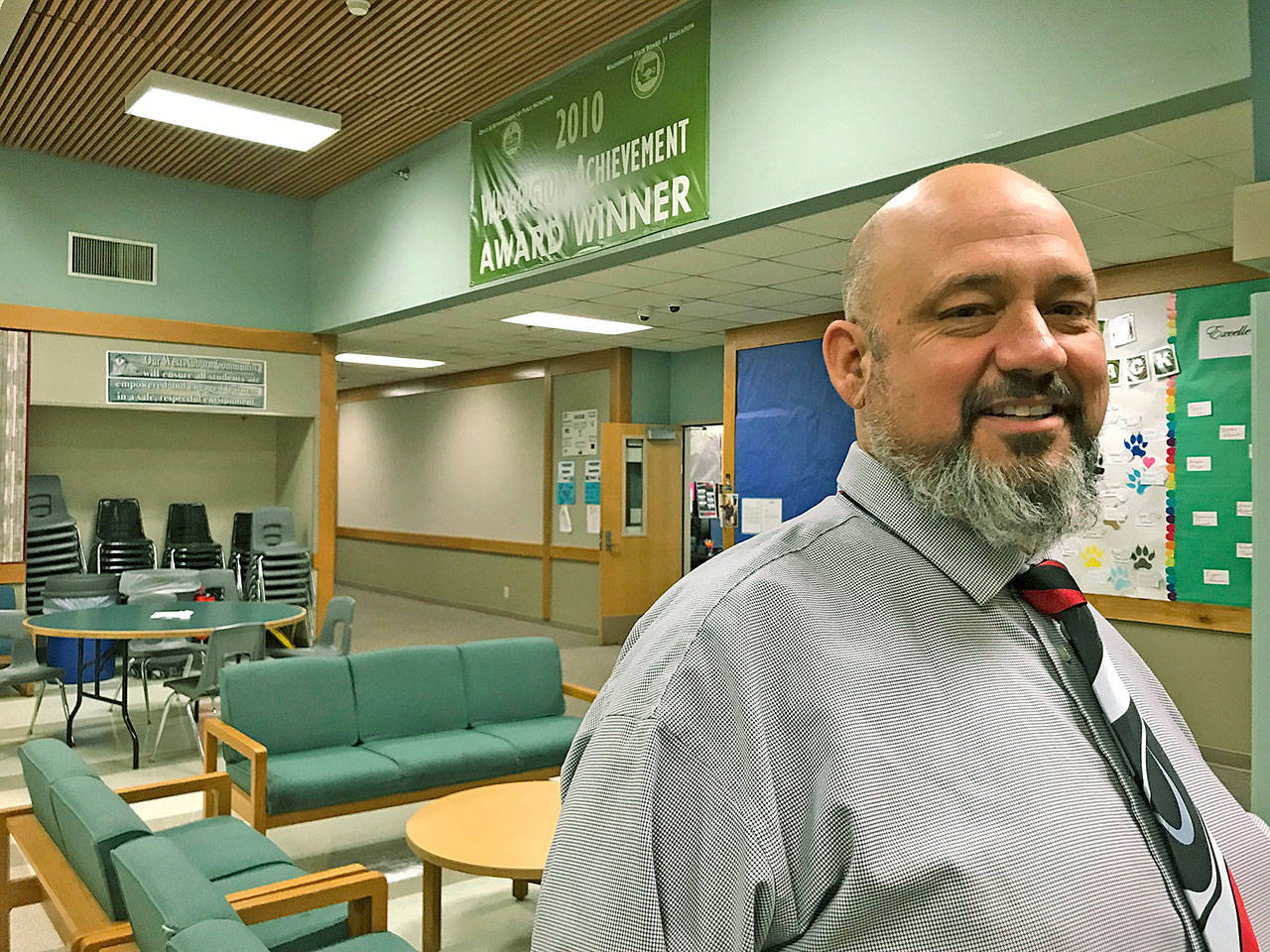Diagnosed with kidney failure nearly two years ago, a surprised but undaunted Ben Talbert considered his only course of action.
He’d battle it, however tough the fight.
His family and friends, his students and his church community were counting on it.
“Bottom line, you can face it, deal with it, or you can be dead,” said Talbert, 52, today assistant principal at West Auburn High School and for 12 years the principal at Rainier Middle School.
Faced with a health crisis, Talbert has scrambled to regain his feet, with the help of advancements in medicine and health care. Talbert, who has diabetes, administers dialysis treatments to himself at home, five nights a week, a four-to-five-hour process that’s necessary to replace the work of healthy kidneys.
Despite the disease, Talbert is living a full life, thanks to the support of others and his team at Northwest
Kidney Centers (NKC), a nonprofit, community-based treatment provider. The center has one of the largest home dialysis programs in the country.
The Auburn man is not alone. Kidney disease affects one in 10 adults, and one in four African-American adults, according to the NKC.
Talbert knew something wasn’t right when he developed complications from the disease last year. Bed ridden, he was quickly taken to a hospital, where doctors detected the problem and prescribed a remedy.
“It didn’t shell-shock me like, ‘What am I going to do?’ It was like, ‘Oh, I now know why I was feeling so bad,’” he said.
In time, Talbert’s condition stabilized and improved.
“It’s a huge blessing. Fifty years ago it was a death sentence. In many countries today, it still is,” Talbert said of kidney disease and its treatment options. “I couldn’t be grateful enough. People go, ‘That’s terrible.’ I say, ‘No, I’m alive.’”
Talbert has plenty to live for. Recently remarried, he tries to play an active role as a father of four – three of whom are teenage boys living at home – while working on his doctoral degree in educational leadership.
He also teaches religious school every Sunday and visits his mother at her assisted-living facility every day.
Without his Mormon faith and tight circle of family and close friends, Talbert admits, he wouldn’t be alive today.
“They’re tremendous,” he said.
Talbert hopes his condition improves so he can take dialysis while he sleeps, allowing him more time, flexibility and mobility to be with family and friends and take part in their activities.
He has been conditionally approved to receive a transplant kidney, and if he continues to grow stronger, hopes to be fully approved for one. In two years, Talbert has climbed the waiting list for a donor.
Talbert is grateful for the clinic’s care.
“There’s tremendous promise. I would want anyone who is struggling with kidney disease to know that it can be difficult at times, but there’s a great quality of life, and there is hope and there is help, great help.”
Talbert has shared his condition with school staff and students, who, as he describes, “have been tremendous.” Talbert understands his students. As a youth, he dropped out of school and had his share of troubles before finding himself and completing his education.
“Ben is very open with his condition and the obstacles that he has to overcome on a daily basis,” said Principal Jon Aarstad. “Our students relate to him well because of this, opening their eyes to the fact that when he says he understands the stress that they are going through, he truly means that.”
Talbert said his story is one of survival, not heroism.
“Bottom line … I still have kids at home that I am responsible for. I have a wife and a family,” he said. “We’re going to stay alive and take care of family.
“Yes, a deadly disease is adversity, which is good,” he added. “Adversity helps us grow. It’s conquerable.”
March is National Kidney Month, and the National Kidney Foundation urges Americans to give their kidneys a second thought, a well-deserved checkup and follow a healthy diet and exercise routine.


